"Diphenylchlorarsine mixed with phosgene half and half—that's cheap enough, we use it in the bombs our police are armed with," said Rolling.
"You are right, sir, it was a gas bomb. Fortunately the draught drove the gas away quickly. I soon regained consciousness and managed to make my way home half-alive. I was poisoned, half-dead, detectives were seeking me all over the town, there was nothing left to do but run away from Leningrad, which I did with great difficulty and in great danger."
Tyklinski spread his arms and bowed his head, giving himself up to the mercy of his employer.
"Are you sure that Garin also fled from Russia?" asked Zoe.
"He had to get away. After that business he would have been obliged to give an explanation to the Criminal Investigation Department."
"Why did he choose Paris?"
"He needs carbon pyramids. Without them his apparatus is like an unloaded gun. Garin is a physicist. He knows nothing about chemistry. On his instructions I worked on the production of those pyramids, after me the man who paid with his life on Krestovsky Island. But Garin has another companion here in Paris, he sent him a telegram to an address on the Boulevard Batignolles. Garin has come here to watch the experiments with the pyramids."
"What do you know about Garin's companion?" asked Rolling.
"He lives in a cheap hotel on the Boulevard Batignolles. We were there yesterday and learned a few things from the concierge," answered Semyonov. "He comes home only to sleep and is away all day. He has no luggage. He leaves the house in a sail-cloth smock, the sort medical students and laboratory workers in Paris wear. He must be working somewhere near by."
"What does he look like? What the hell do I care about his sail-cloth smock! Did the concierge tell you what he looks like?" shouted Rolling.
Semyonov and Tyklinski exchanged glances.
"If the gentleman wishes we will find out what the man looks like today," answered Tyklinski, placing his hand on his heart.
Rolling did not speak at once, but sat frowning.
"How can you be sure that the man you saw yesterday in a cafe on the Boulevard Batignolles and the man who went underground on the Place de 1'fitoile was one and the same person and that he is Engineer Garin? You were mistaken once already in Leningrad. Well?"
Semyonov and Tyklinski again exchanged glances. Tyklinski smiled with extreme politeness.
"Mr. Rolling surely cannot believe that Garin has doubles in every city."
Rolling stubbornly nodded his head. Zoe sat with her hands wrapped in ermine, looking out of the window as though she were not interested.
"Tyklinski knows Garin too well to make such a mistake," said Semyonov. "At the moment we have something more important to decide. Are you going to let us do this job alone and one fine morning bring the drawings and the apparatus to your office on the Boulevard Malesherbes, or are you going to work with us?"
"Under no circumstances!" said Zoe suddenly, still looking out of the window. "Mr. Rolling is very interested in Engineer Garin's experiments, Mr. Rolling would very much like to acquire the rights for this invention; Mr. Rolling always keeps strictly within the law; if Mr. Rolling were to believe even one word of what Tyklinski has said it stands to reason that he would not hesitate to call the police commissioner and hand over such a scoundrel and criminal to the authorities. As Mr. Rolling understands perfectly well that Tyklinski invented the whole story in order to get more money out of him he will be kind enough to allow him to continue to perform some small services."
For the first time during that lunch Rolling smiled, took a gold toothpick out of his waistcoat pocket, and poked it between his teeth. Beads of sweat stood out on the bald patches on Tyklinski's red forehead, his cheeks hung flabbily.
"Your job will be to give me precise and complete information, point by point, in accordance with detailed instructions which you will receive at three o'clock today at my office on the Boulevard Malesherbes," said Rolling. "You are required to work as decent detectives and nothing more. Not one step, not one word without my orders."
The gleaming, white, plate-glass-sided train of the Nord-Sud underground line sped with a soft rumble through dark, winding tunnels under Paris, past tangled networks of cables, past niches in which workers crouched lit up by the passing train, past yellow letters on a black background: "Dubonnet. Dubonnet. Dubonnet," a drink that the advertisements hammered into the minds of Parisians.
A momentary stop. A station flooded with underground light. Square, coloured advertisements: Wonder Soap, The World's Strongest Braces, Lion Head Shoe Polish, Red Devil Rubber Tyres, sales at the Louvre, La Belle Fleuriste, and Gallerie Lafayette department stores.
The noisy, smiling crowd of pretty women, midinettes, messenger-boys, foreigners, young men in tight-fitting jackets, workers in sweat-stained shirts tucked under red sashes, milling and swarming, stormed the train. The glass doors slide open... "Oo-oo-oo..." came like a huge sigh from the whirlpool of hats, staring eyes, gaping mouths, flushed, happy, angry faces that swirled into the train. Conductors in brick-red jackets, hanging on to the handrails, forced the passengers into the train with their stomachs. The doors close with a crash; a short whistle and the train disappears like a ribbon of fire into the black tunnel.
Semyonov and Tyklinski were sitting on a side seat of the Nord-Sud train with their backs to the door. Pan Tyklinski was fuming.
"I ask you to bear in mind that it was only propriety that kept me from making a scene. I could have lost my temper a hundred times. As though I've never eaten lunch | with a multimillionaire! To hell with them and their lunches. I can give as good a lunch myself at the Laperouse and won't have to listen to the insults of a street woman... Proposing that Tyklinski play the detective! The bitch, the hussy!"
"Oh, cut it out, Pan Tyklinski, you don't know Zoe, she's a wonderful woman, an excellent comrade. Perhaps she was a bit too hard on you..."
"Apparently Madame Zoe is used to having dealings with the dregs of society, with your emigres... But I'm a Pole, I'd ask you to remember that." Tyklinski blew out his moustaches in a terrifying manner. "I will not permit people to talk to me in that tone..."
"All right, Stas, you've shaken your moustaches and let off steam," said Semyonov after a short pause. "Now listen carefully to me: we're getting good pay for nothing much. The work is safe, even pleasant: just hang around pubs and cafes... Personally, I'm very pleased with today's talk. You talk about tecs... Nonsense! I'm telling you, we're offered a splendid job in the secret service."
Near the door behind the seat occupied by Semyonov and Tyklinski a man stood leaning his elbow against the brass upright of the car—the man who had called himself Pyankov-Pitkevich during his conversation with Shelga on the Trade-Union Boulevard in Leningrad. His overcoat collar was turned up, concealing the lower part of his face, and his hat was pulled down over his eyes. He stood there in a careless attitude, sucking the bone handle of a walking-stick; he listened to the whole conversation between Semyonov and Tyklinski, politely made way for them when they hurried out of the carriage, got out himself two stations farther on at Montmartre. At the nearest post-office he handed in a telegram:
"Shelga. C.I.D. Leningrad. Four-Fingers here. Menacing developments,"
Leaving the post-office he walked up the Boulevard Clichy, keeping on the shady side.
From every doorway, from the basement windows, from under the striped awnings stretched over marble-topped tables and cane chairs, drifted the sour smell of night drinking dens. Pasty-faced garqons in short dinner jackets and white aprons, hair plastered on either side of an immaculate parting, were sprinkling the tiled floors and sidewalks between the tables with damp sawdust, setting out armfuls of flowers, turning bronze handles, to raise the awnings.
Читать дальше
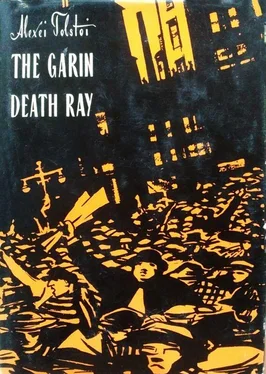
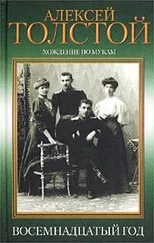

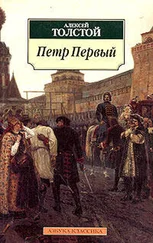
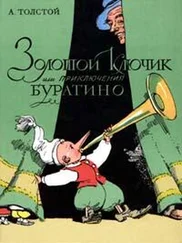
![Алексей Николаевич Толстой - Хождение по мукам [litres]](/books/26263/aleksej-nikolaevich-tolstoj-hozhdenie-po-mukam-litr-thumb.webp)
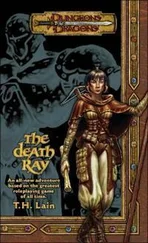

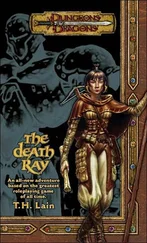


![Алексей Николаевич Толстой - Гиперболоид инженера Гарина. Аэлита [Художник Г. Зубковский]](/books/423486/aleksej-nikolaevich-tolstoj-giperboloid-inzhenera-ga-thumb.webp)
